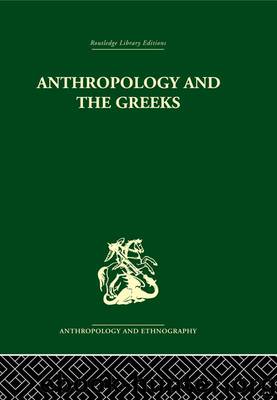Anthropology and the Greeks by Humphreys S. C.;

Author:Humphreys, S. C.;
Language: eng
Format: epub
ISBN: 1474485
Publisher: Routledge
II Substantive conclusions
For a study of the forms and functions of kinship groupings in ancient Greece it was found convenient to distinguish four institutional contexts : the official subdivisions of the state (tribe, phratry, deme, etc.), the aristocratic conical clan (genos), the bilateral kindred (anchisteis) and the household (oikos). These groupings and the clusters of rules governing their structure and articulation are the nodes of the kinship structure of Greek society : they overlap, but are distinguished by functional specializations as well as by the different ways in which genealogical relationships are selected and structured in them. This division of the kinship institutions of ancient Greek society into sub-systems, and consequent distinction between the principles of internal organization of each sub-system and its modes of external articulation, is particularly important for the study of social change and of variations between Greek societies.
The relation between tribe, trittys, phratry and genos in ancient Athens has been a central problem in the study of ancient kinship since Fustel de Coulanges. Eduard Meyer and De Sanctis already saw at the beginning of this century that the genos had to be separated from the other three groupings, despite Aristotle's statement that the genos was a segmentary subdivision of the phratry. (This statement only survives in a quotation without context which concerns the Athenian state in the time of its legendary founder Ion, not its constitution in Aristotle's own day.) Fuller information about descent groups in other societies makes it possible now to support Meyer's and De Sanctis's view with new arguments. An appreciation of the resemblances and differences between these Greek groups and descent groups elsewhere described by anthropologists can contribute to the understanding of both.
(1) Tribe, phratry, etc. Membership of tribe and phratry was always a requisite for citizenship and, even before the concept of citizenship existed, for social personality. For Homer the man who has no phratry is also homeless and outside the law. Tribe, phratry and other official subdivisions of the State are recruited by patrifiliation and organize society in sets of superimposed segments : each tribe consists of three trittyes in Athens, each trittys contains a fixed number of phratries (perhaps three: this suggestion is based on the fact that trittys originally means a group of three, not a third part). The numbers of these groups are fixed; they are not internally structured by genealogy (all members have identical rights and obligations), and they do not show the processes of fission and fusion characteristic of the segmentary lineage system as a political organism. They are administrative (and military) divisions. Only inside the phratry do we find the formation of smaller groups (thiasoi) recruited from within the phratry, apparently on a voluntary basis, which probably had significance for the internal political processes of the group and were labile in composition. (The special case of the place of the genos inside the phratry is discussed below.) In anthropological terminology tribes, trittyes and phratries are patrilineal clans and sub-clans made up not of lineages but of individual households and associations with a mixed basis of recruitment.
Download
This site does not store any files on its server. We only index and link to content provided by other sites. Please contact the content providers to delete copyright contents if any and email us, we'll remove relevant links or contents immediately.
| Africa | Americas |
| Arctic & Antarctica | Asia |
| Australia & Oceania | Europe |
| Middle East | Russia |
| United States | World |
| Ancient Civilizations | Military |
| Historical Study & Educational Resources |
Cat's cradle by Kurt Vonnegut(15359)
Pimp by Iceberg Slim(14508)
4 3 2 1: A Novel by Paul Auster(12393)
Underground: A Human History of the Worlds Beneath Our Feet by Will Hunt(12099)
The Radium Girls by Kate Moore(12030)
Wiseguy by Nicholas Pileggi(5787)
The Fire Next Time by James Baldwin(5447)
Perfect Rhythm by Jae(5404)
American History Stories, Volume III (Yesterday's Classics) by Pratt Mara L(5308)
Paper Towns by Green John(5191)
Pale Blue Dot by Carl Sagan(5010)
A Higher Loyalty: Truth, Lies, and Leadership by James Comey(4964)
The Mayflower and the Pilgrims' New World by Nathaniel Philbrick(4504)
The Doomsday Machine by Daniel Ellsberg(4490)
Killers of the Flower Moon: The Osage Murders and the Birth of the FBI by David Grann(4448)
The Sympathizer by Viet Thanh Nguyen(4393)
Too Much and Not the Mood by Durga Chew-Bose(4348)
The Borden Murders by Sarah Miller(4325)
Sticky Fingers by Joe Hagan(4201)
